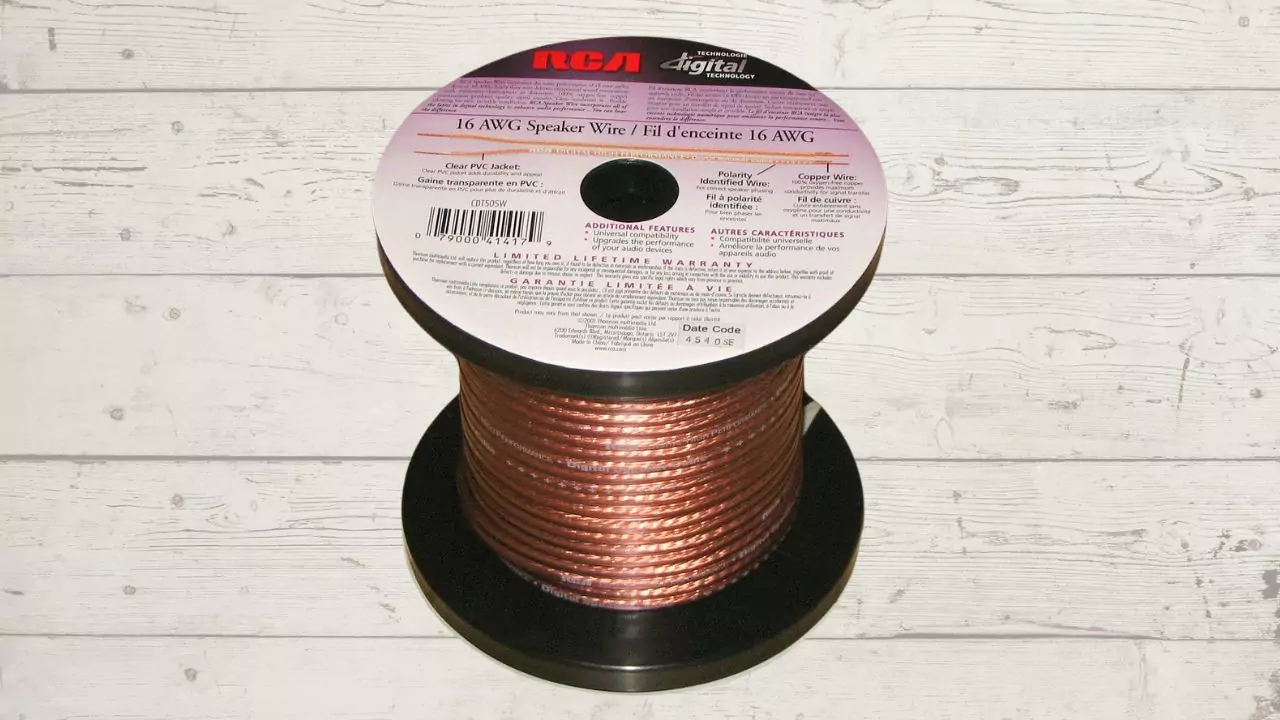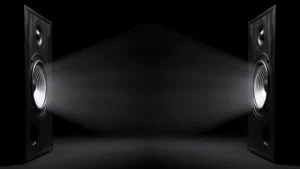Yes! While speaker wire can technically conduct power for low-voltage applications, it’s not designed for this purpose, and using it as a substitute for power wire is not advisable.
Speaker wire lacks the necessary voltage and current ratings, and proper insulation, and may not be composed of the right materials to handle power transmission safely.
It’s especially unsuitable for high-voltage mains power, where using the correct type of wire is critical to prevent overheating and fire hazards.
Always prioritize safety and consult with a professional electrician or adhere to local electrical codes when selecting wires for power applications.
In This Article:
Understanding Speaker Wire and Power Wire: Built for Different Currents
Speaker wire and power wire serve distinct purposes in electrical systems:
Speaker Wire
This is a type of electrical wire specifically designed for connecting audio amplifiers to speakers. It carries low-voltage audio signals from the amplifier directly to the speakers. Speaker wire is typically made from copper or aluminum and is gauged to handle the electrical current required by the speakers. The wire’s construction allows it to transmit the audio signal with minimal resistance and interference, ensuring high-quality sound reproduction.
Power Wire
On the other hand, a power wire is used to conduct electricity from a power source to electrical devices. It’s designed to handle higher voltages and currents than speaker wire. Power wires are usually insulated to withstand the thermal and environmental conditions they may encounter. They come in various sizes and materials, each suited to specific voltage, current, and installation requirements. The primary function of a power wire is to deliver electrical power safely and efficiently to operate devices and equipment.
Can Speaker Wire Handle the Power? (Yes, But With Limitations)
Technically, speaker wire can conduct electricity, but there are limitations to consider:
- Power Limits: Speaker wire isn’t built for the big leagues. Using it with power-hungry devices can cause the wire to overheat and melt, posing a serious fire hazard.
- Wire Gauge Matters: There’s a range of thicknesses for speaker wire, measured by American Wire Gauge (AWG). Lower AWG numbers indicate thicker wires. While 18 or 16 gauge speaker wire might be okay for low-power tasks like powering LED lights, even moderately powered devices necessitate thicker options like 14 or 12 gauge wire.
- Safety First: Rigging up speaker wire for power demands meticulous attention to safety. Connections must be secure and properly insulated to prevent electrical shocks.
Benefits: A Few Perks (But Use with Caution)
In limited scenarios, there can be some advantages to using speaker wire for power delivery:
- Convenience Factor: If you already have a speaker wire on hand and the device requires low power, it might act as a temporary solution.
- Bending Around Corners: Speaker wire’s flexibility often surpasses that of power wire, making it easier to navigate tight spaces.
Tips for Using Speaker Wire for Power (Proceed with Caution)
- Double-check the Power Requirements: Always verify the device’s power requirements. Ensure the chosen speaker wire gauge can handle the current draw without breaking a sweat.
- Don’t Push Your Luck: If the wire feels warm to the touch, it’s overloaded and presents a potential fire hazard. Shut things down and find a thicker wire.
- Quality Matters: Don’t skimp on the speaker wire. Cheap wire might not be able to handle the current safely.
- Secure Connections are Key: All connections should be tight and secure, with any exposed wire properly insulated to prevent shorts.
- Low Power Only: Remember, speaker wire is best suited for low-power applications. Don’t even consider attempting to power high-wattage devices like appliances or motors with speaker wires.
Speaker Wire vs. Electrical Wire
Speaker wire and electrical wire, while similar in their basic function of conducting electricity, are designed for different applications:
Differences:
- Insulation: Electrical wire typically has thicker insulation to handle higher voltages, whereas speaker wire has thinner insulation suited for low-voltage audio signals.
- Current Carrying Capacity: Electrical wire is designed to carry higher currents, making it suitable for powering devices, while speaker wire is intended for lower currents associated with audio signals.
- Safety Standards: Electrical wire must meet strict safety standards and codes for power transmission, which speaker wire does not.
Similarities:
- Conductivity: Both types of wire are conductive and can carry electrical current.
- Material: They are often made from similar conductive materials, such as copper or aluminum.
Considerations for Using Speaker Wire for Power:
- Assess the Load: Ensure the speaker wire can handle the electrical load without overheating.
- Check Local Codes: Verify that using speaker wire for power complies with local electrical codes.
- Use Appropriately: Reserve speaker wire for low-voltage and low-power applications, and never use it for mains electricity.




